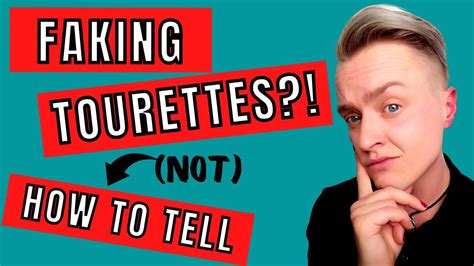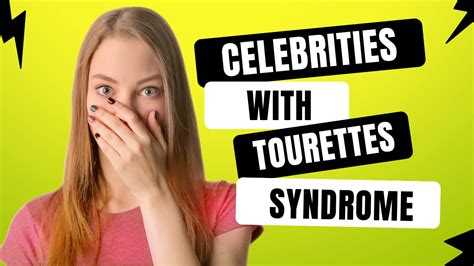how to know if tourettes are fake ,people with tourette's fakers,how to know if tourettes are fake,A common worry is whether the tics we experience are fake or ‘put on’. But fear not. If you are asking this question, you probably have good intentions, and good reason for ticcing, too. $1,824.00

Introduction
Tourette syndrome, a neurodevelopmental disorder characterized by repetitive, involuntary movements and vocalizations known as tics, is often misunderstood and stigmatized in society. Unfortunately, there are individuals who falsely claim to have Tourette's or fake their tics for various reasons. However, it is crucial to differentiate between genuine cases of Tourette's and those who may be faking it. In this article, we will explore the misconceptions surrounding Tourette's, discuss how to identify if someone is faking the disorder, and highlight the importance of understanding and supporting individuals with genuine Tourette syndrome.
How to Tell If Tourette Is Faking
1. Inconsistencies in Symptoms: One of the key indicators that someone may be faking Tourette's is inconsistencies in their tic symptoms. Genuine Tourette's is characterized by a variety of motor and vocal tics that typically persist over time. If an individual's tics seem to come and go, or if they only occur in certain situations, it may be a red flag that they are not genuine.
2. Lack of Emotional Distress: Individuals with Tourette syndrome often experience emotional distress and social difficulties due to their tics. If someone claims to have Tourette's but does not exhibit any signs of emotional distress or impairment in daily functioning, it is possible that they are faking the disorder.
3. Performance Tics: Some individuals may fake tics for attention or to appear "cool" or unique. These performance tics may be exaggerated or theatrical in nature, and often do not align with the typical presentation of Tourette syndrome.
4. Response to Treatment: Genuine Tourette's is a complex neurological disorder that can be challenging to treat. If someone claims to have Tourette's but does not respond to standard treatments or therapies for the disorder, it may raise suspicions about the authenticity of their diagnosis.
Does Tourette's Really Fake?
The misconception that Tourette's is fake or that individuals fake their tics can be harmful and perpetuates stigma surrounding the disorder. Tourette syndrome is a medically recognized condition that can have a significant impact on an individual's quality of life. Dismissing or downplaying the experiences of those with Tourette's only serves to further marginalize and invalidate their struggles.
Faking Tourette Syndrome: Understanding the Motivations
There are various reasons why someone may fake Tourette syndrome, ranging from seeking attention or sympathy to trying to avoid responsibility for their actions. It is important to approach these situations with empathy and understanding, as individuals who fake Tourette's may be struggling with their own mental health issues or seeking validation in unhealthy ways.
Faking Tics for Tourette Syndrome: The Consequences
Faking tics for Tourette syndrome not only undermines the experiences of those with genuine Tourette's but also perpetuates harmful stereotypes and misconceptions about the disorder. It is essential to educate oneself and others about the complexities of Tourette syndrome and to challenge the stigma and discrimination that individuals with the disorder may face.
People with Tourette's Fakers: Addressing Misinformation
In online communities such as Reddit, discussions about Tourette's and the authenticity of individuals claiming to have the disorder can sometimes lead to misinformation and skepticism. It is important to approach these discussions with a critical eye and to rely on reputable sources of information when seeking to understand Tourette syndrome and other neurodevelopmental disorders.
Is Tourette's a Faker: Debunking Myths
The idea that Tourette's is a "faker" or a scam is rooted in ignorance and misunderstanding of the disorder. Tourette syndrome is a complex neurological condition that is diagnosed through a thorough evaluation by healthcare professionals. It is crucial to dispel myths and misconceptions about Tourette's and to promote empathy and support for individuals living with the disorder.

how to know if tourettes are fake Shop pre-owned Goyard handbags, purses and accessories. Find your perfect pre-loved designer Goyard bag at Yoogi's Closet. Authenticity Guaranteed.
how to know if tourettes are fake - people with tourette's fakers